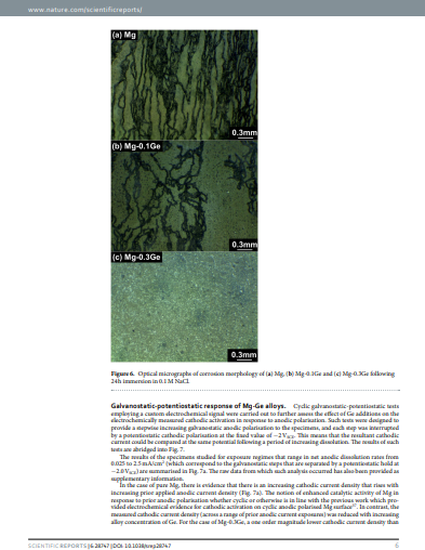
The evolution of corrosion morphology and kinetics for magnesium (Mg) have been demonstrated to be influenced by cathodic activation, which implies that the rate of the cathodic partial reaction is enhanced as a result of anodic dissolution. This phenomenon was recently demonstrated to be moderated by the use of arsenic (As) alloying as a poison for the cathodic reaction, leading to significantly improved corrosion resistance. The pursuit of alternatives to toxic As is important as a means to imparting a technologically safe and effective corrosion control method for Mg (and its alloys). In this work, Mg was microalloyed with germanium (Ge), with the aim of improving corrosion resistance by retarding cathodic activation. Based on a combined analysis herein, we report that Ge is potent in supressing the cathodic hydrogen evolution reaction (reduction of water) upon Mg, improving corrosion resistance. With the addition of Ge, cathodic activation of Mg subject to cyclic polarisation was also hindered, with beneficial implications for future Mg electrodes.
